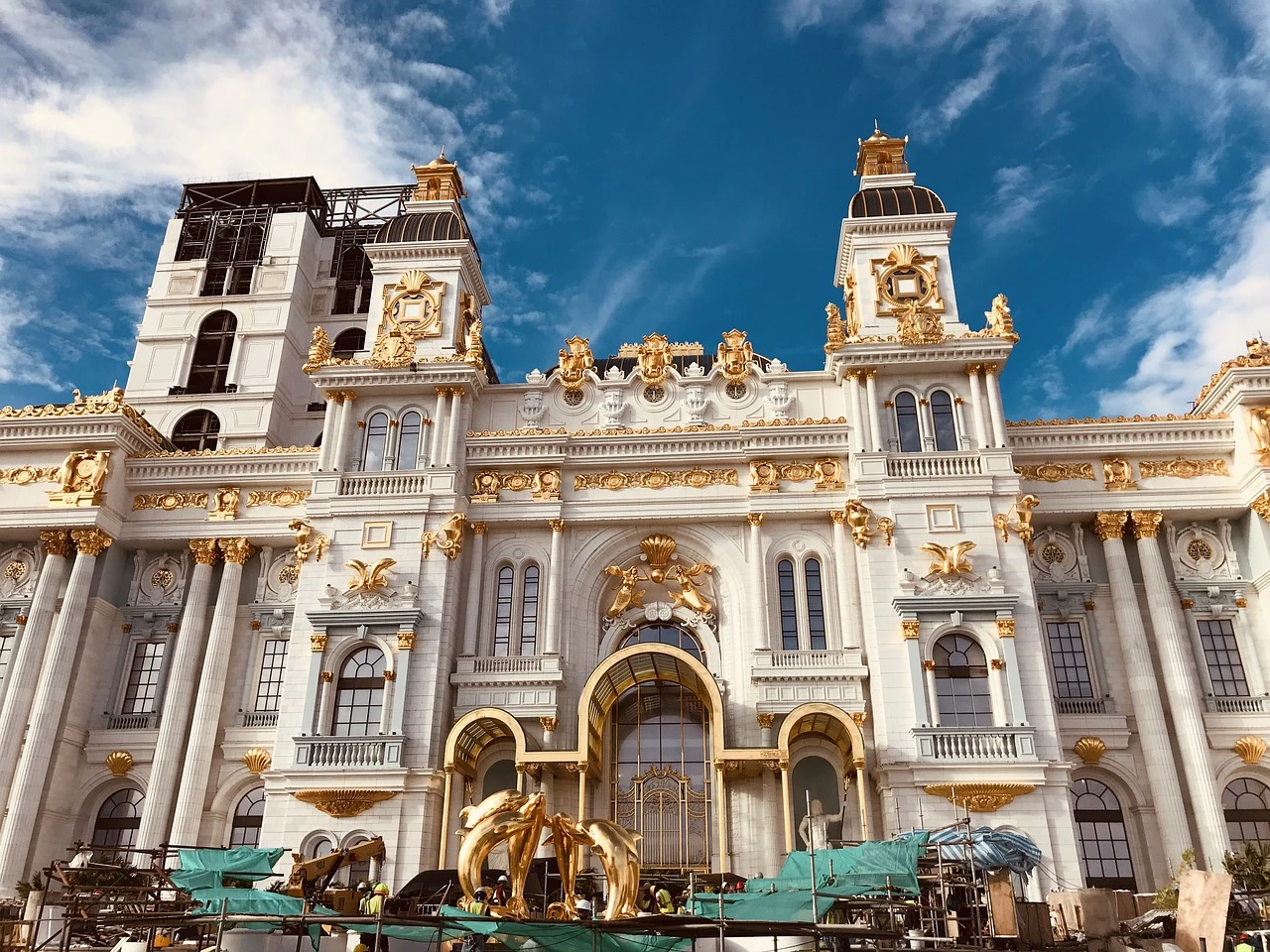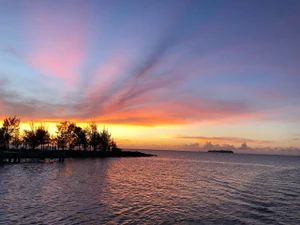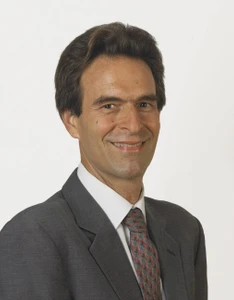Saipan casino saga slithers toward second attempt

Over the past decade, Imperial Pacific International’s Saipan casino project has gashed a path of destruction across the Commonwealth of Northern Marianas Islands, specks of US Pacific territory at least four hours’ flying time from Asian markets.
Ruins defile Saipan and beyond.
The shuttered Imperial Palace casino hotel despoils Saipan’s downtown Garapan beachfront along with dozens of ancestral graves, plus fallen Japanese and American World War II fighters, disturbed on the site. There’s also one dead construction worker. Others mangled through forced labour trafficking. Some $3bn in uncollected gambling debts, of which $20m is owed to creditors and much more to CNMI authorities. Then there have been FBI raids on the governor’s office. Elected officials admitting to wrongdoing to enable the casino.
A brutal legacy
Despite IPI’s brutal legacy, many appear ready to bet again that casino gambling amid tropical weather and visa-free entry for Chinese tourists can aid CNMI’s teetering economy and cash-strapped government.
Businessman Glen Hunter filed a lawsuit that led to three legislators, including future governor Ralph Torres, admitting violating CNMI’s Open Government Act to pass Saipan’s casino law in 2014 without public hearings, ignoring two Saipan referenda rejecting casinos. Those lawmakers and other elected officials accepted luxury visits to Macau and Hong Kong from IPI associates.
Match fixing?
“It was a corrupt process that was handled behind closed doors and done to satisfy one particular investor. The entire bidding process was a farce,” Hunter, owner of beachfront restaurant The Shack, says.
“The sole licensee was arranged and chosen far in advance of the bidding process. They had wined and dined our elected officials and took them on private trips through Asia to win them over and secure that licence through corrupt means.”
Yet, he adds in an email, “We have learned some very tough lessons…. I do believe if done properly, a true casino investor or investors could successfully run a casino(s) in the CNMI.”
The “particular investor” behind IPI is Ji Xiaobo, a former executive of Hengsheng Group, Macau’s self-declared first mainland China-led junket promoter. Ji and his associates acquired Hong Kong-listed First Natural Foods, changed its name to Imperial Pacific International and made Ji’s mother Cui Lijie, once one of Mao Zedong’s barefoot doctors, majority shareholder.
Upping the ante
After winning the licence requiring a $2bn investment and 2,000 new hotel rooms, IPI announced a $7.1bn development plan with 4,000 rooms, including a beachfront hotel in Garapan and a tropical Pacific version of Macau’s Cotai Strip on a site to the north.

“A $7bn development on an island with a population of only 43,000 was never ever realistic,” iGamiX managing partner Ben Lee says. “[Neither] the market nor the local infrastructure could ever support that kind of a beast.
“Those staggering figures were put forth for one reason only – to scare off any real casino investor,” Hunter says. “No sensible investor would ever agree to that type of investment in our region.”
Bait and switch
In 2015, IPI opened a casino in Garapan’s DFS shopping mall catering to tourists – “a bait and switch,” Hunter says. Under former Sands China Macau president Mark Brown, a Trump Casinos alumnus, IPI began reporting otherworldly VIP rolling chip volumes.
In 2017, IPI reported VIP volume of $49.5bn on an average of 18 tables. That same year, Venetian Macao reported $26.2bn volume on its 100-plus VIP tables. During VIP operations from late 2015 to its 17 March 2020 Covid-19 shutdown, IPI reported VIP roll in excess of US$100bn and $3.3bn in VIP revenue.
Many view the figures skeptically. “It’s something that is very difficult for industry professionals outside of Saipan to believe because the rolling numbers were so ridiculously high. But for those that witnessed the action firsthand it was real. Mind boggling, but real,” former IPI Saipan CEO Donald Browne tells iGB.
“If there is any skepticism at all, it should be on the credit side. Since all credit approvals came down from the corporate office, we had no knowledge of the customers’ ability to repay the debt.”
Deadbeat VIPs
Indeed, IPI’s uncollected player debt nearly matches its reported $3.3 billion VIP revenue. To John Kucera, lead US prosecutor in the 1MDB Malaysian sovereign wealth fund case, uncollected VIP debt far beyond industry norms suggests money laundering.
“If you cannot come up with a legitimate business explanation for why you were doing what you did with your money, that’s when, as an investigator, you’ve got a pretty good idea that something fishy is going on,” Kucera, now a partner at Boies Schiller Flexner, explains, without knowing specifics of the IPI situation.
“That you can point to actual gambling doesn’t mean there were not illicit proceeds going in there. Win or lose, you’ve laundered your money when it comes out the other side.”
As a US territory, Saipan has more stringent anti-money laundering controls than many other jurisdictions. (A remark from Ji during a group conversation suggests he thought, as do some lawyers, that CNMI’s commonwealth status exempts it from US money laundering laws. Browne says, “Contrary to beliefs, Ji was very adamant that compliant AML was critical to the operation.”)
Shooting and hopping
A cooperative US based financial institution, such as a casino, however, can be a golden ticket for money laundering. Saipan, with the patina of US regulation but far less scrutiny due to distance – Saipan is farther from Los Angeles than London is from Tokyo – and diligence, is an ideal place to “shoot the gap,” according to Kucera.
“The trick in money laundering is getting the hop, hopping from a bank in a more or less illegitimate place, or a less legitimate place, to a more legitimate place.” Kucera theorises funds from Saipan could be sent to a small onshore US bank then to a large US bank with a robust compliance reputation for banks around the globe to rely on.
To be clear, IPI has not been charged with casino money laundering, even after the FBI raided its Saipan offices in November 2019 as part of an operation that included searching the offices of an IPI consultant, then-governor Torres and his brother’s law firm. Last year, Torres was impeached then indicted on charges of misusing government funds before losing his November reelection bid.
Palace coup
“The most critical mistake was that the company took on too much responsibility in the construction and placed family, friends and investors with little knowledge of construction, building code or labour laws directly involved in the development of the project,” Browne says of Imperial Palace, where construction began in 2015.
IPI claims spending $1bn to date on the unfinished 344-room hotel. The casino designed for 193 tables and 365 machines partially opened in July 2017.
Executives from IPI and China state-owned construction firm MCC International’s Saipan affiliate were indicted in August 2020 on federal charges related to forced labour and human trafficking.
Attorneys Aaron Halegua and Bruce Berline won judgments totalling $6.9m from IPI and two construction companies for seven Chinese labourers who suffered severed fingers, burns and other serious injuries while working under inhumane conditions and who were denied medical care.
“We were very pleased when the court recognised the egregiousness of IPI’s conduct and the severity of the suffering that it caused our clients,” Halegua says. “However, too many forced labour victims only obtain a piece of paper. We worked hard to ensure that the defendants paid the money awarded by the court and are very pleased with this result.”
Unpaid bills
Many IPI creditors remain unpaid. Since late last year, Clear Management senior partner Tim Shepherd has conducted four court-sanctioned auctions of Imperial Palace property on behalf of creditors, with a fifth scheduled for 9 June.
Previous auctions sold cards, chips and furniture. Remaining items include up to 300 slot machines, closed circuit TV components, sundry table gaming equipment and, perhaps, two dragon chandeliers spanning 60 metres, studded with 2.5 million crystals and weighing 40 tons hanging in the Imperial Palace lobby.
Auction proceeds won’t come close to meeting the sums IPI owes its creditors. Trying to collect IPI’s unpaid gaming debts from VIP players is an option however.
Debts still to be repaid
“IPI’s liquidator can decide to pursue any parties that owe IPI money,” bankruptcy lawyer Kingsley Ong, a partner with CMS Cameron McKenna in Hong Kong, says. “Before pursuing the debts, the liquidator will need to be satisfied that the debtors are worth pursuing, there are sufficient resources available from IPI funds or other sources to fund the pursuit and that this course of action would be in the interest of IPI’s creditors.”
While gambling debts are not legally enforceable in mainland China, debtors may have assets in other jurisdictions where collection is possible. The liquidator could also sell the debt to a collection agency for a fraction of its face value.
Beyond private creditors, IPI owes CNMI annual casino licence and regulatory fees of $18.65m for 2020, 2021 and 2022, plus penalties. Hong Kong trading in IPI shares has been suspended since 1 April last year with the last price below one US cent. Attempts to contact IPI were unsuccessful.
Licence to kill
CNMI lawmakers are urging the Commonwealth Casino Commission to cancel IPI’s exclusive licence. “We’re told that if we get rid of the exclusive gaming licence then we’re gonna get investors,” representative Joel Camacho says. He suggests licensing three small casinos.
“I had actually conducted a preliminary feasibility study in 2011 and had in fact advised the government that a single monopoly was not in the interest of the island,” Ben Lee, whose company operated Club C slot parlour in Saipan, says. His presentation to legislators a dozen years ago suggested a $10 million investment floor.
“I believe that Saipan has potential due to the Japanese and Korean markets that visit the island,” EuroPacificAsia Consulting managing partner Shaun McCamley, once an executive at Tinian Dynasty casino on Saipan’s neighboring island, says. “A $20m investment would be tops in my view.”
Amazing things can happen with a gaming licence and an entrepreneur
A property “similar to a southern Caribbean or Puerto Rico casino-hotel, where the casino is an amenity rather than a tourism-inducing pipe dream, would be best and easiest to staff,” Convergence Strategy Group managing partner Scott Fisher, who has consulted in CNMI, says.
“If an Asian Atlantis was constructed on Saipan, it would succeed on just the Chinese market alone,” Imperial Palace architect Paul Steelman says, referencing the 3,800-room beachfront resort in the Bahamas. “Amazing things can happen with a gaming licence and an entrepreneur.”
Amazingly good and otherwise.
Citing Muhammad Cohen
I’ve covered the Saipan casino saga since its 2014 licensing process. So when I met five CNMI legislators in Manila attending the ASEAN Gaming Summit in March, I hoped we could learn from one another.
I had an off the record lunch with four representatives from CNMI’s House Ways and Means & Gaming Committee, chairman Ralph Yumul, Joel Camacho, John Paul Sablan and Marissa Flores. I also spoke individually with them and senator Corina Magofna.
Afterwards I emailed them all to comment for this article. None replied. Neither did governor Arnold Palacios, who served as lieutenant-governor under predecessor Ralph Torres before defeating him in last November’s election.
Facing criticism for spending public funds on visiting Manila, Yumul’s committee held a press conference available on YouTube.
Flores invoked my name and credentials to express her opinion that the primary government culprit in Saipan’s casino fiasco is the Commonwealth Casino Commission. “The commission did not understand the consequences of implementing substandard regulations. The current situation is a testament to that and there is no denying it.”
‘Like blaming Lincoln’s assassination on the play’
Fortuna Investments Worldwide senior partner Tim Shepherd has dealt with regulators across Asia for 20 years and consulted on CNMI casino project Tinian Diamond, due to open this year. He calls the CNMI commission “a responsible, professional regulator”.
Other committee members echoed Flores, bashing the commission, not the corrupt legislative process that led to licensing IPI in 2014. Three committee members were sitting legislators then, Yumul, Sablan and Roman Benavente, who did not travel to Manila.
During the press conference, a reporter asked Flores if Muhammad Cohen suggested what CNMI should do. “He stands on the sentiment that the CNMI at that time made a big, big mistake that we poorly regulated this industry, and that’s all I have to say about that.”
My emailed response to Flores and colleagues: “To set the record straight, I believe blaming the Casino Commission for the problems of the IPI project is like blaming [US President Abraham] Lincoln’s assassination on the play.”

Former US diplomat and current iGB Asia editor at large Muhammad Cohen has covered the casino business in Asia since 2006, most recently for Forbes, and wrote Hong Kong On Air, a novel set during the 1997 handover about TV news, love, betrayal, high finance and cheap lingerie.
